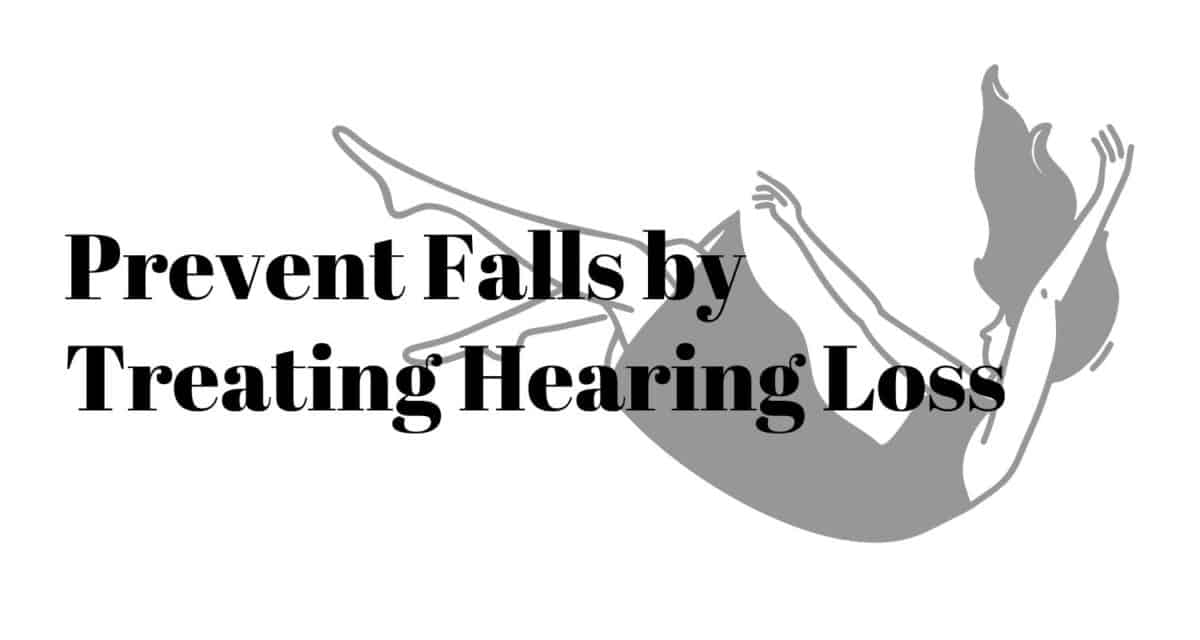- The Future of Hearing Health Research: Promising Breakthroughs - April 18, 2024
- Hearing Health in the Classroom: Strategies for Teachers and Students - April 6, 2024
- The Power of Bluetooth: A New Chapter in Hearing Aids - March 26, 2024
We’ve all heard the warning that most accidents occur at home. This is particularly poignant for older Americans, who experience falling accidents at a higher rate than any other population. In fact, According to the Centers for Disease Controls, falls are the leading cause of death for people over 65 and the highest death rates resulting from accidental falls are among older people.
Hearing loss in people over age 65
It’s not a coincidence that hearing loss is also a leading health concern for older adults, as age remains the leading predictor of this health concern. One-third of people over the age of 65 suffer from debilitating hearing loss. The ratio of hearing loss in older adults increases dramatically with age. Half of people over 85 live with hearing loss.
The two health concerns that do not exist in isolation hearing loss can lead to balance issues. Thankfully, the act of treating hearing loss can also reduce your risk of accidental falls.
Age-related hearing loss
Hardly a preventable condition, most cases of hearing loss occur due to the natural aging process. Over time, the important and sensitive cells of the inner ear become worn down or damaged. These cells are a vital component of the hearing process, as they are responsible for receiving noise from the external world and translating it into sound information. The sound information is sent to the brain via the auditory nerve. In the brain, our processing centers make meaning of the information.
The inner ear cells are non-regenerative, which means that they do not repair themselves. Over time, as we lose cells, we also lose access to sounds from the external world.
How hearing loss impacts balance
Hearing loss causes a perfect storm in the ways it disrupts our balance. Because our ability to hear the sounds of our environment is lessened, we possess less awareness of the world around us. Our healthy hearing helps us both perceive and pinpoint where sounds are coming from. When we lose that ability, we don’t hear our pets barrel through the door or swiftly run up alongside us. We might be more surprised when a family member or another person in our household comes around a corner.
Just as we can’t easily locate where sounds are coming from, hearing loss detracts from our spatial awareness, or where our bodies are located in space. That means we can misjudge distance and bump into or trip on items due to our lack of notice.
And finally, because our brains are working harder to process sounds (due to lack of information) and speech, we are distracted. We have less energy to devote to avoiding obstacles or noticing the happenings around us. We have fewer brain resources to monitor our balance.
The implications of a fall
When we’re young, we might experience falling as an unpleasant experience. It can be disorienting and irritating, but we can probably jump back up and dust ourselves off with no real harm done. As we age, that reality changes considerably.
In people over 65, one out of five accidental falls results in a serious injury. Broken bones and head injuries are far more likely as we age and require a more intensive healing process. Despite this, many accidental falls remain unreported. It’s difficult to get an exact gauge on this, but it’s estimated that of the more than one out of four people who fall every year, doctors are told of less than half of them.
What’s more, falling once immediately doubles your chances of falling in the future.
Ways to lower your risk of falling
There are habits you can cultivate that help to improve your balance as you age. Yoga or tai chi are movement practices that both strengthen stabilizing muscles and use balance practice within the modality. These flows and sequences often have students practice balancing and shifting weight between one foot and the other. This practice can help to teach your body about using the balance on a subconscious level so that you’re more likely to rebound quickly if taken by surprise or having your balance disrupted.
Many healthcare practices and senior centers offer falling prevention classes or balance workshops. These are led by healthcare practitioners who help seniors skillfully manage and improve their sense of balance. There are even workshops that prepare seniors on the right ways to fall, minimize injury, and protect their bodies.
Treating hearing loss is a way to improve your balance and reduce your risk of falls. With enhanced hearing, you’ll be better able to observe and notice your surroundings, improve your sense of spatial awareness and also decrease the amount of effort your brain is spending on listening and hearing.

